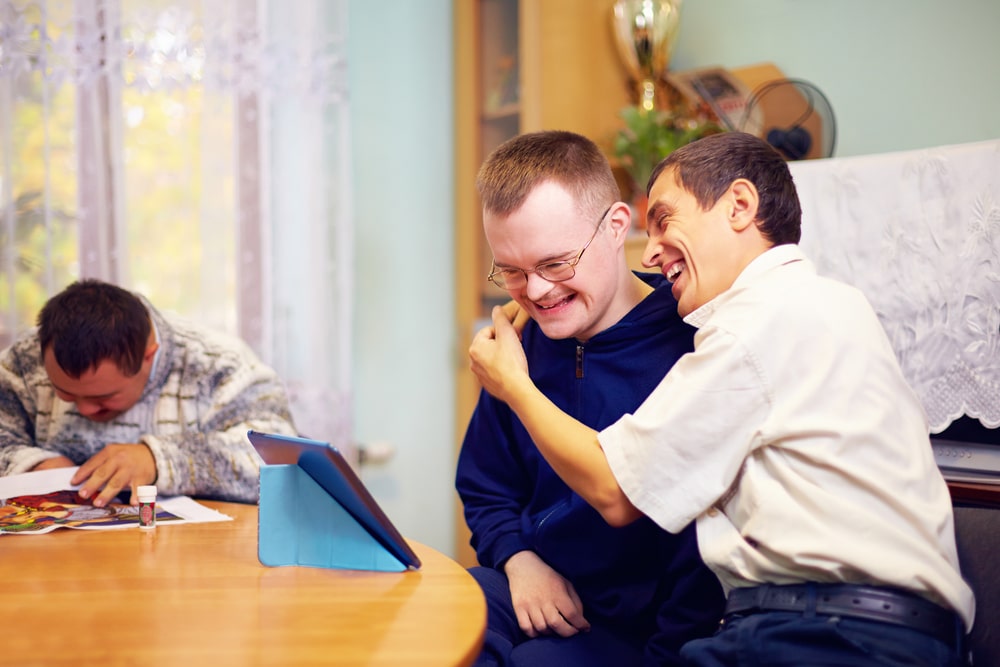Guardianship Attorneys in Monmouth and Ocean County, NJ
You raised your child with a cognitive disability all their life, and now, at age 18, the law considers your child an adult.

What are the Types of Guardianship in New Jersey?
A guardianship is a legal authority a court grants to someone to act for another. So, an adult child may be a legal guardian for a parent who no longer has the mental capacity to protect their interests and safety. Likewise, a parent can be a guardian of an adult child for the same reasons. But the powers granted to the guardian depend on the capacity of the person who needs care. For example, a developmentally delayed adult who can express their wishes but cannot comprehend contracts, drive a car, or navigate the maze of phone options when calling a medical office may need a limited guardianship. On the other hand, a severely autistic adult may need a general or plenary guardianship for someone to make all decisions.
What is better power of attorney or guardianship in Toms River?
However, before applying for guardianship, you might consider if alternative measures address your situation. For example, an adult child can authorize you to be involved in their educational and healthcare planning. You can attend their meetings with special education counselors and Individualized Education Program sessions. Your child can also designate you as the person to consent to their emergency medical care. And finally, your child can appoint you as power of attorney (POA) over their affairs if they understand what that means. They must know that a POA authorizes you to make decisions concerning their person or property, or both, depending on its terms until they revoke or change it. A POA is quicker and less expensive than guardianship but may not be appropriate for someone with mental illness or moderate to severe cognitive deficits.
What are some reasons for guardianship?
Some situations require guardianship. And since guardianships essentially deprive an adult the right to direct their affairs and have agency over their life, a court ordering guardianship wants to ensure the petitioning guardian has the ability and motivation to make the right decisions for the ward (person who needs the guardianship). The guardian should encourage independence, involve the ward in decision-making to the extent possible, and act within the ward’s bests interests. That may mean arranging health, education, and social opportunities that enhance the incapacitated adult’s life. Knowing what is suitable for an adult child may be easier when they are your child, especially if they have already received services to help them.
For example, if your child received state services for care, therapy, or assisted learning, they may have already had a guardianship assessment by New Jersey’s Division of Developmental Disabilities (DDD). The Division evaluates a child’s ability to make life choices and live an independent life. Since guardianship is essentially giving up their right to independence, they also want to know if the child understands the guardianship process. Otherwise, the New Jersey Supreme court decides to grant guardianship for someone who has not received state services. The determination hinges on the adult child’s decision-making capability and understanding of the guardianship proceedings.
Guardianship Process in NJ

If granted, the guardianship requires the guardian to act in the best interests of the adult charge and obey any court’s specific orders. Additionally, the court may limit the guardian’s powers. For example, the court may restrict guardianship to decision-making over healthcare, financial, or educational matters, or only one area. It depends on the ward under consideration and the changes that may occur throughout their life. As such, the DDD reviews guardianships annually, and a court may replace a guardian if the appointed guardian dies or becomes incapacitated. A court can also add a co-guardian upon request of the appointed guardian.
Can you file for guardianship without a lawyer?
While it is possible to obtain guardianship on your own, you should seriously consider getting the help of an experienced guardianship and family law attorney who knows how the courts work and what they require to grant guardianship. The court rules and legal requirements to filing the proper documents may be confusing, and you could waste time getting your documents rejected or your hearing rescheduled for incomplete information. A skilled guardianship lawyer can also review the options with you. When a POA or other alternatives to guardianship are better for your family, your attorney can highlight the pluses and minuses of a critical decision and help you arrive at the best solution.
Contact our Guardianship Attorneys in Brick, NJ to explore the options that fit your and your children’s needs.
In addition to immediate concerns, a guardianship attorney can help you down the line. At Bronzino Law Firm, we can not only help you plan for and prepare your guardianship petition but speak on your behalf at the hearing to address any questions the court may have. Often, courts want to know more than a petition provides. Our legal team can ensure that guardianship covers the specific needs of your child. Then, if changes are necessary for the future, we can help you petition the court to make any changes after the guardianship is in effect. If you have questions or concerns, consult with a knowledgeable attorney at The Bronzino Law Firm who can advise and guide you on this critical life decision.
We assist clients with guardianship-related matters for disabled children and other loved ones throughout Ocean and Monmouth Counties, including in towns such as Lakewood, Jackson, Manchester, Little Egg Harbor, Lacey, Toms River, and Berkeley Township. Contact our Brick office at (732) 812-3102 for a free consultation and find answers and guidance directly related to your situation.







